Arts & Culture
Just Millennial Things: “Memes” On Your Timeline
Since its birth, memes have been a topic for laughs by many. If you didn’t get the meme you’d be callled a “normie” and sometimes if you’re not laughing at a meme or editing one to fit your humor, you’re probably the “meme-able” one. How we communicate has truly evolved through social media, and interpreting memes and actually understanding them and using them as a form of communication reassures that.

If you understand the humor behind certain photos with captions edited into them shared by thousands, well, congratulations! You’re still part of this generation. These posts are dubbed as “memes”, it is referred to as a “catchphrase, concept or an activity” that eventually found its way to being a “piece of media that eventually spreads”. If there’s one thing that’s true about these forms of media, it’s that it’s humorous, to say the least.
Memes are manipulated and edited clips from movies, or photos from paparazzi that mirror everyday situations of the ordinary person. It is a product of creativity that eventually clicks towards the culture and environment one spreads it to.
Said to be coined in the year 1976, Richard Dawkins had shared that these memes on the Internet are a “hijacking of the original idea”, which would prove that the evolution and mutation of these media are the very things that support its existence.
There are so many memes born in a span of a week sourced from famous events, TV shows and of course, in unusual circumstances. Even if there are some that have failed to crack us up or have left the internet world forever, there are some memes that stuck with most netizens and lived on long enough for us to scroll through on our “TLs” (timelines) a couple of times.
Classical Art Memes
Photo: Sherdog Forums
Art appreciation and meme-loving is a mix we can all enjoy. Take for example these classical art memes that truly speak to this generation’s woes and is relatable to our everyday experiences and “feels”.
Even if these art were made ages ago, their meanings (or how we interpret them) still holds true until this day. In this world of screens, it’s still worth our while to go over originals on canvas that are national treasures.
Kim Kardashian Memes

Photo: Gabriel Zamora on Twitter
We all love her for her and her family’s reality TV show Keeping Up With The Kardashians, and also because of her merchandise and cosmetics line. Except for all the attention she’s getting about her behind, there are some clips from the TV show that portray Kim as a “meme-able” gal.
Buff Kim is just one of the memes going around social media that have truly made us think Kim’s more than just this Barbie girl in her fabulous and expensive Barbie world.
“Is This A Pigeon” Meme

Photo: inews.co
This meme was picked out from a scene in a Japanese anime TV series “The Brave Fighter of Sun Fighbird”, and it was about how the protagonist in the series mistakenly identified a butterfly as pigeon. From then on, in most social media sites, it is used to describe sarcastic confusion on things.
When you do not know how to respond to your clueless friend, just go on over an editing app and make yourself a new meme featuring your friend and their dubieties.
Distracted Boyfriend Meme

Photo: Reverend Scott on Twitter
This famous photo started off as a stock photo you could see with just one click away on Google when you’d want a sample photo of different happenings and activities.
The source image, taken by photographer Antonion Guillem, has the description “Disloyal man with his girlfriend looking at another girl” before it even went into the spotlight in the “meme world”. This meme is used when one’s wanting something other than what one already has, hence, the disloyalty in the relationship reference.
Kermit the Frog Memes

What we know as a cartoon character back in the day has now reincarnated itself to fit the new generation. If you’re frequently on Twitter, you’ve probably known how the latest “chika” is now in the form of the word “tea”, which gladly fits this Muppet’s image right here, who’s sipping a cup of Lipton tea and talking about “hypocrisy” and “stupidity” of different people.
Netizens mostly use it to “throw shade” at different people they either hate or would want to start a feud with. Well, Kermit’s got to do all the talking about this “tea”. You need to spill!
Salt Bae Meme


“Salt Bae” is actually Turkish chef Nusret Gökçe, who became viral for his video while fabulously sprinkling salt on the carved steak he was cooking up. He is long known to be prepping his meals in the sassiest ways, often called a “theatrical” preparation of food.
The meme can be used in a number of different ways. It may be taken literally as to sprinkling something on someone like (“K”s to your boyfriend when you’re mad), or it could mean that one’s really being #extra just like chef!
Mocking Spongebob Meme

Photo: PassionX
Also known as “Spongemock”, this particular image was sourced from the episode of the animated comedy series SpongeBob SquarePants called “Little Yellow Book”. In the episode, this meme was born because of Squidward when he happens to go over SpongeBob’s diary, discovers that whenever SpongeBob sees plaid, he acts like a chicken!
This mocking meme is paired with captions with alternating upper and lower case letters comprising a sentence.
Since its birth, memes have been a topic for laughs by many. If you didn’t get the meme you’d be callled a “normie” and sometimes if you’re not laughing at a meme or editing one to fit your humor, you’re probably the “meme-able” one. How we communicate has truly evolved through social media, and interpreting memes and actually understanding them and using them as a form of communication reassures that.
Featured Photo Credits: marketingturkiye.com.tr
Arts & Culture
Visayas Art Fair Year 5: Infinite Perspectives, Unbound Creativity
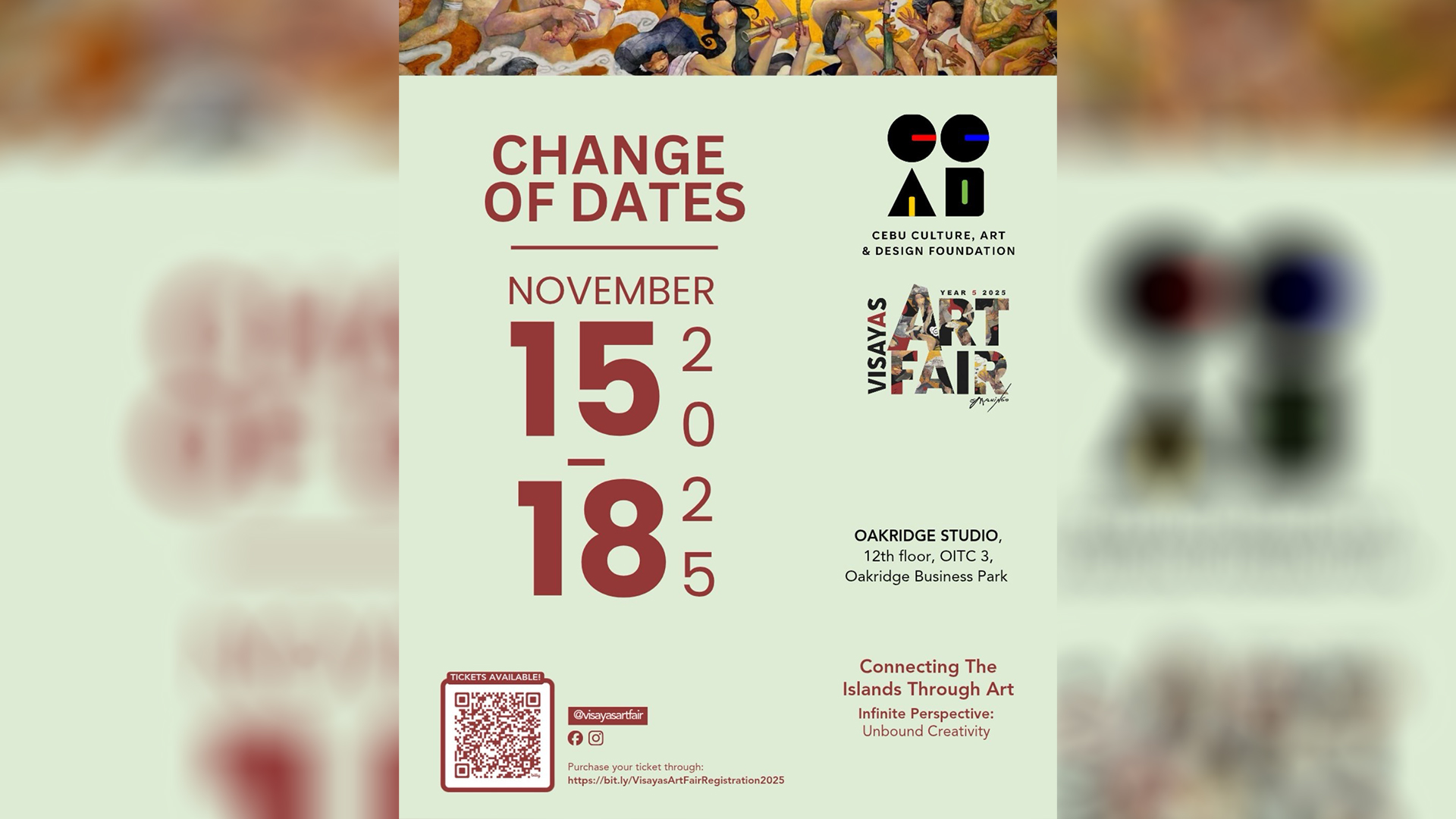
by Jing Ramos
This year’s Visayas Art Fair marks its 5th anniversary, celebrating the theme “Infinite Perspectives: Unbound Creativity.” The fair continues its mission of bridging creativity, culture, and community in the country. This milestone edition strengthens its partnership with the National Commission for Culture and the Arts and expands collaborations with regional art organizations and collectives—reinforcing its role as a unifying platform for Philippine art.
VAF5 features the works of Gil Francis Maningo, honoring the mastery of his gold leaf technique on opulent portraits of the Visayan muse Carmela, reflecting spiritual awareness.
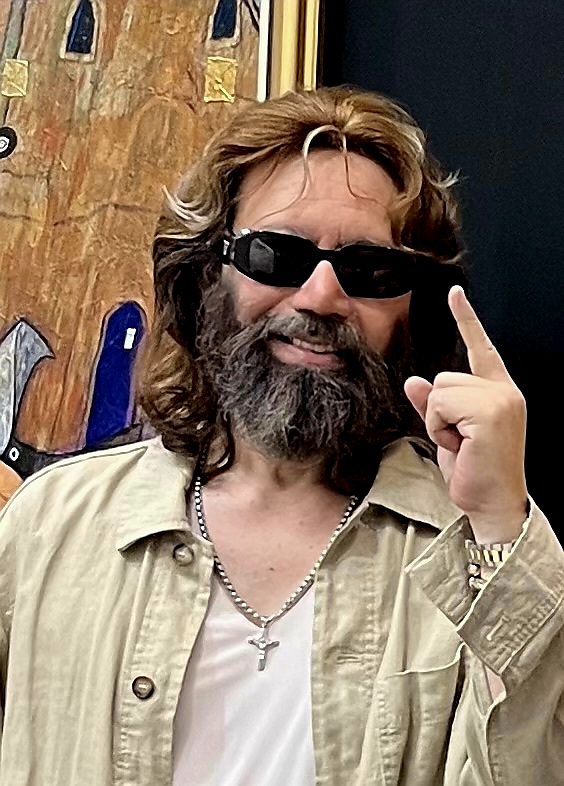
Gil Francis Maningo is celebrated for his gold leaf technique.
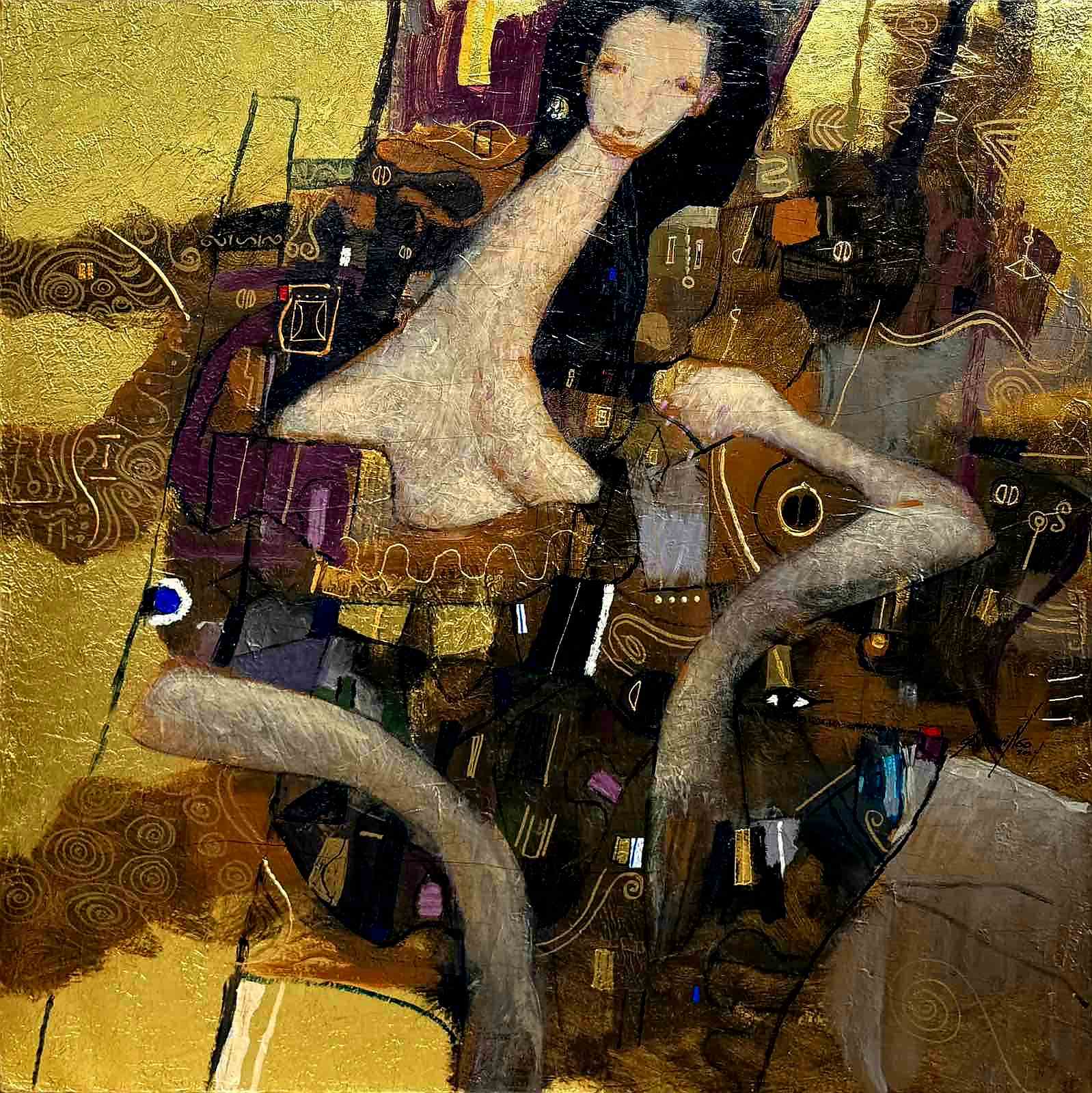
Gil Francis Maningo’s recurring theme of his Visayan muse “Carmela”.
Another featured artist is Danny Rayos del Sol, whose religious iconography of Marian-inspired portraits offers a profound meditation on the sacred and the sublime. This collaboration between two visual artists sparks a dialogue on the Visayan spirit of creativity and resilience. Titled “Pasinaya,” this dual showcase explores gold leaf as a medium of light and transcendence.
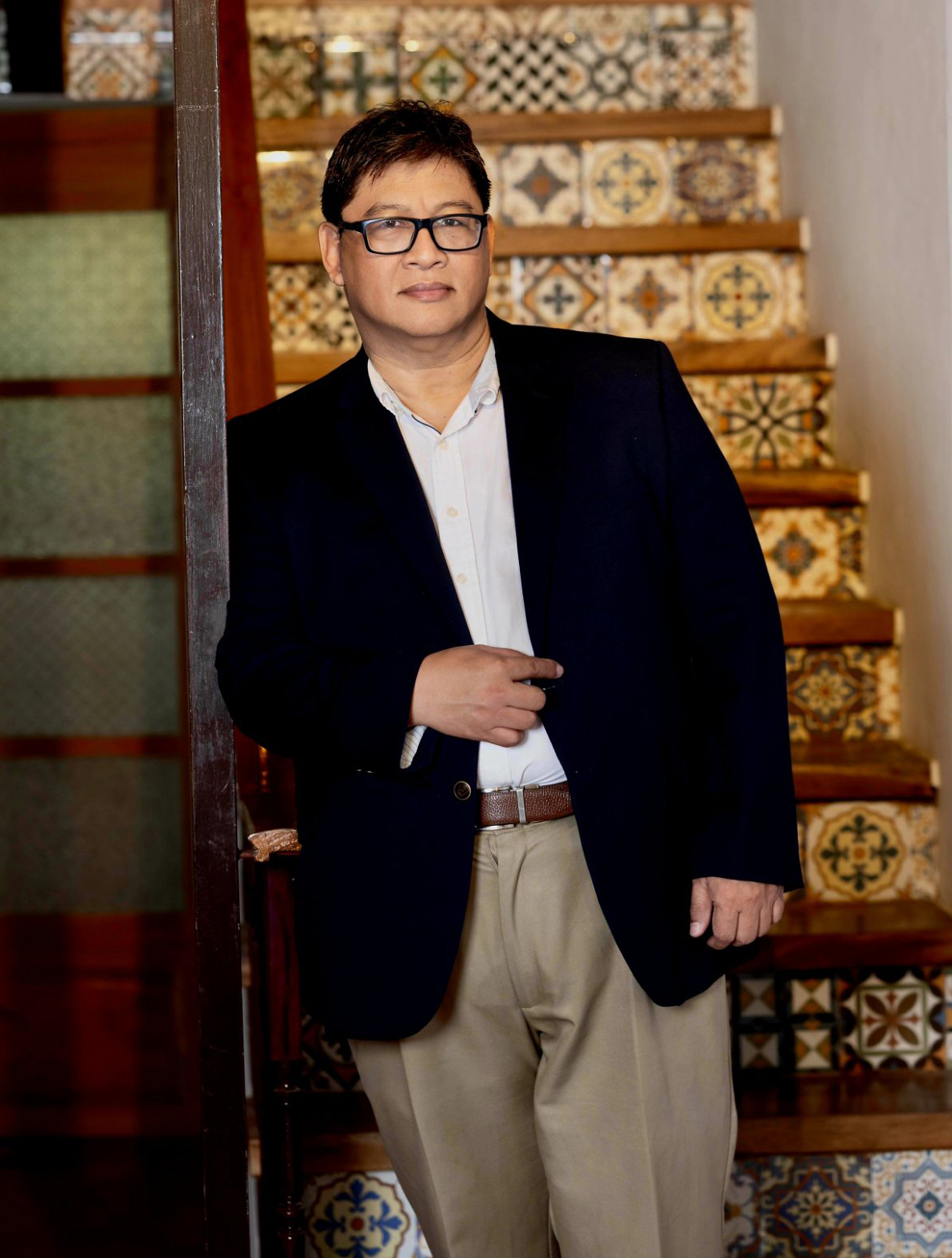
Artist Danny Reyes del Sol
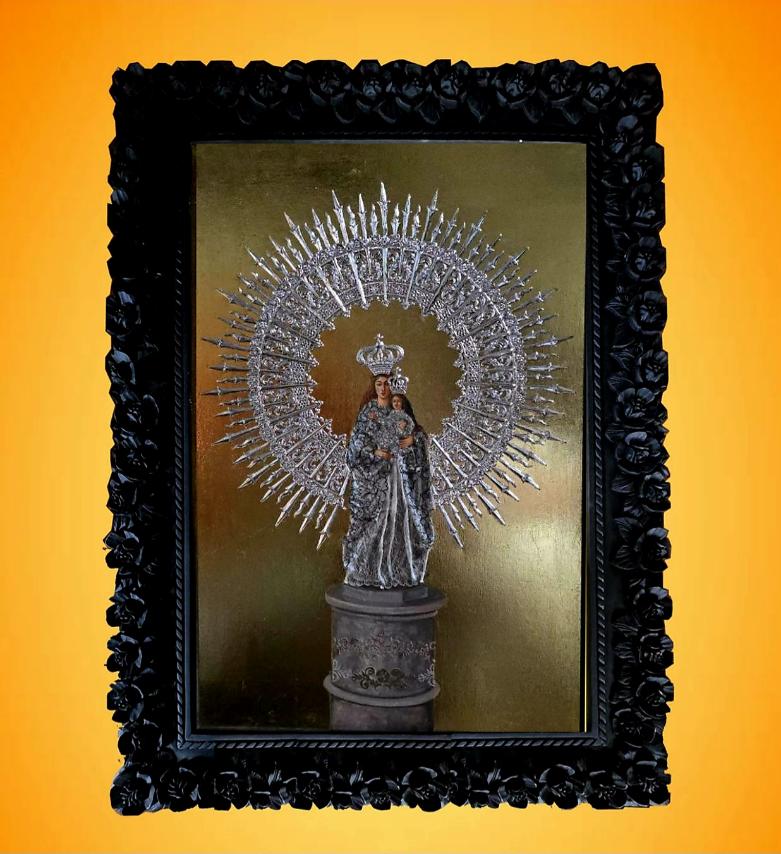
Danny Reyes del Sol’s religious iconography.
Now in its fifth year, the Visayas Art Fair has influenced a community of artists, gallerists, brokers, collectors, museum curators, and art critics—constructing a narrative that shapes how we approach and understand the artist and his work. This combination of factors, destined for popular consumption, illustrates the ways in which art and current culture have found common ground in a milieu enriched by the promise of increased revenue and the growing value of artworks.
Laurie Boquiren, Chairman of the Visayas Art Fair, elaborates on the theme, expressing a vision that celebrates the boundless imagination of unique artistic voices:
“Infinite Perspectives speaks of the countless ways artists see, interpret, and transform the world around them—reminding us that creativity knows no single point of view. Unbound Creativity embodies freedom from convention and controlled expression, allowing every artist to explore and experiment without borders.”
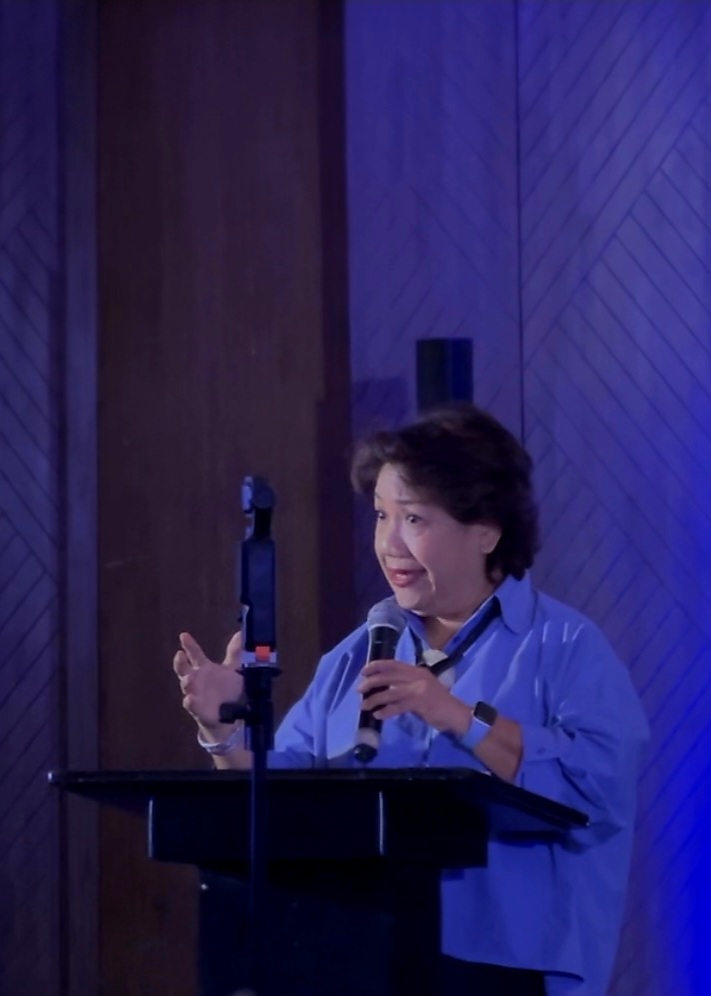
Laurie Boquiren, Chairman of the Visayas Art Fair has tirelessly championed the creative arts for the past five years.
Arts & Culture
Kultura. Kapital. Kasalukuyan: Art that Speaks of Today
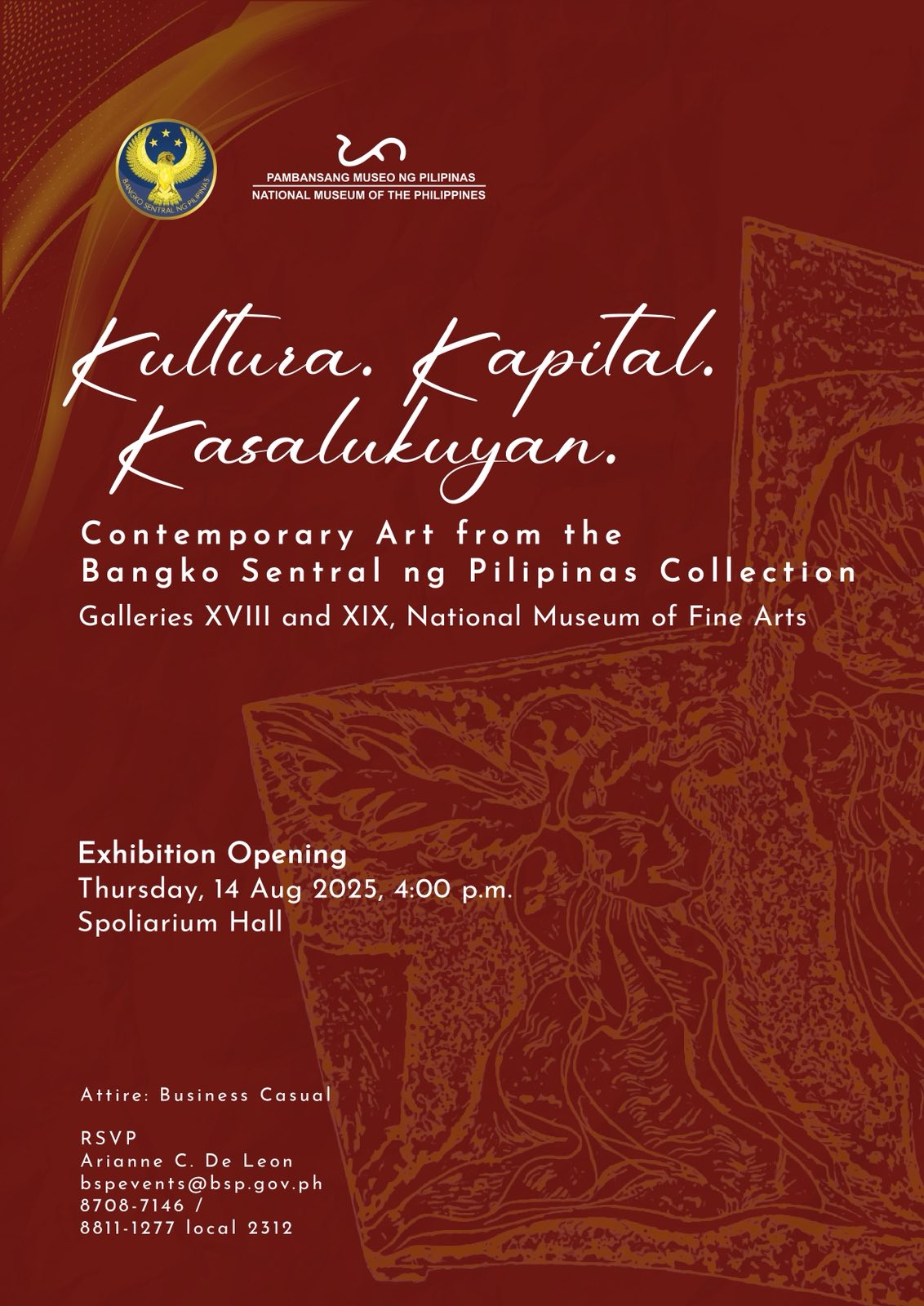
by Jose Carlos G. Campos, Board of Trustees National Museum of the Philippines
The National Museum of the Philippines (NMP) and the Bangko Sentral ng Pilipinas (BSP) recently teamed up to prove that money isn’t just for counting—it’s also for curating! Their latest joint exhibition, Kultura. Kapital. Kasalukuyan: Contemporary Art from the Bangko Sentral ng Pilipinas Collection, is now open, and it’s a real treat for art lovers and culture buffs alike.
On display are gems from the BSP’s contemporary art collection, including masterpieces by National Artist Benedicto Cabrera (Bencab), along with works by Onib Olmedo, Brenda Fajardo, Antipas Delotavo, Edgar Talusan Fernandez, and many more. Some of the artists even showed up in person—Charlie Co, Junyee, Imelda Cajipe-Endaya, Demi Padua, Joey Cobcobo, Leonard Aguinaldo, Gerardo Tan, Melvin Culaba—while others sent their family representatives, like Mayumi Habulan and Jeudi Garibay. Talk about art running in the family!
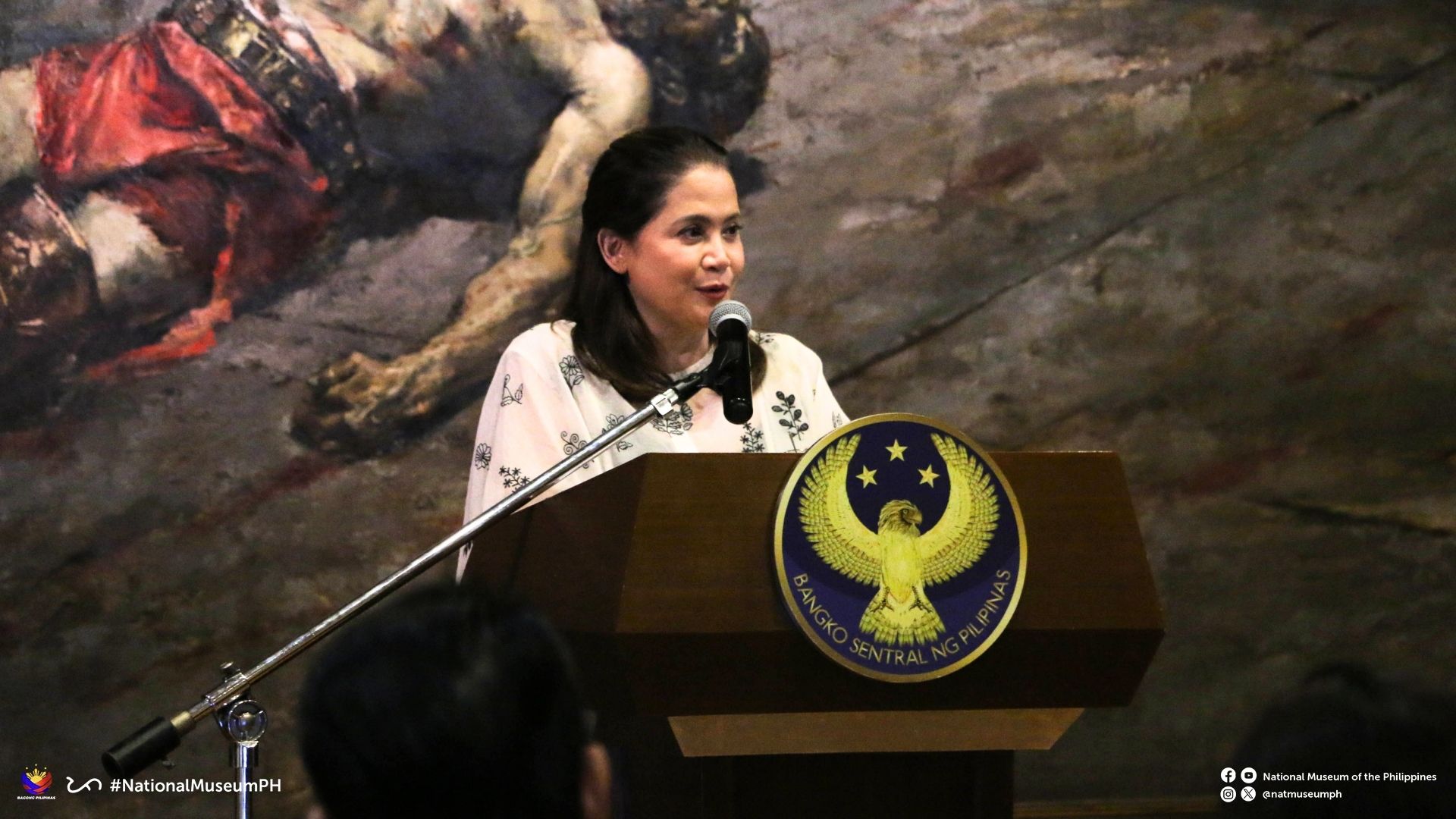
Deputy Governor General of the BSP, Berna Romulo Puyat
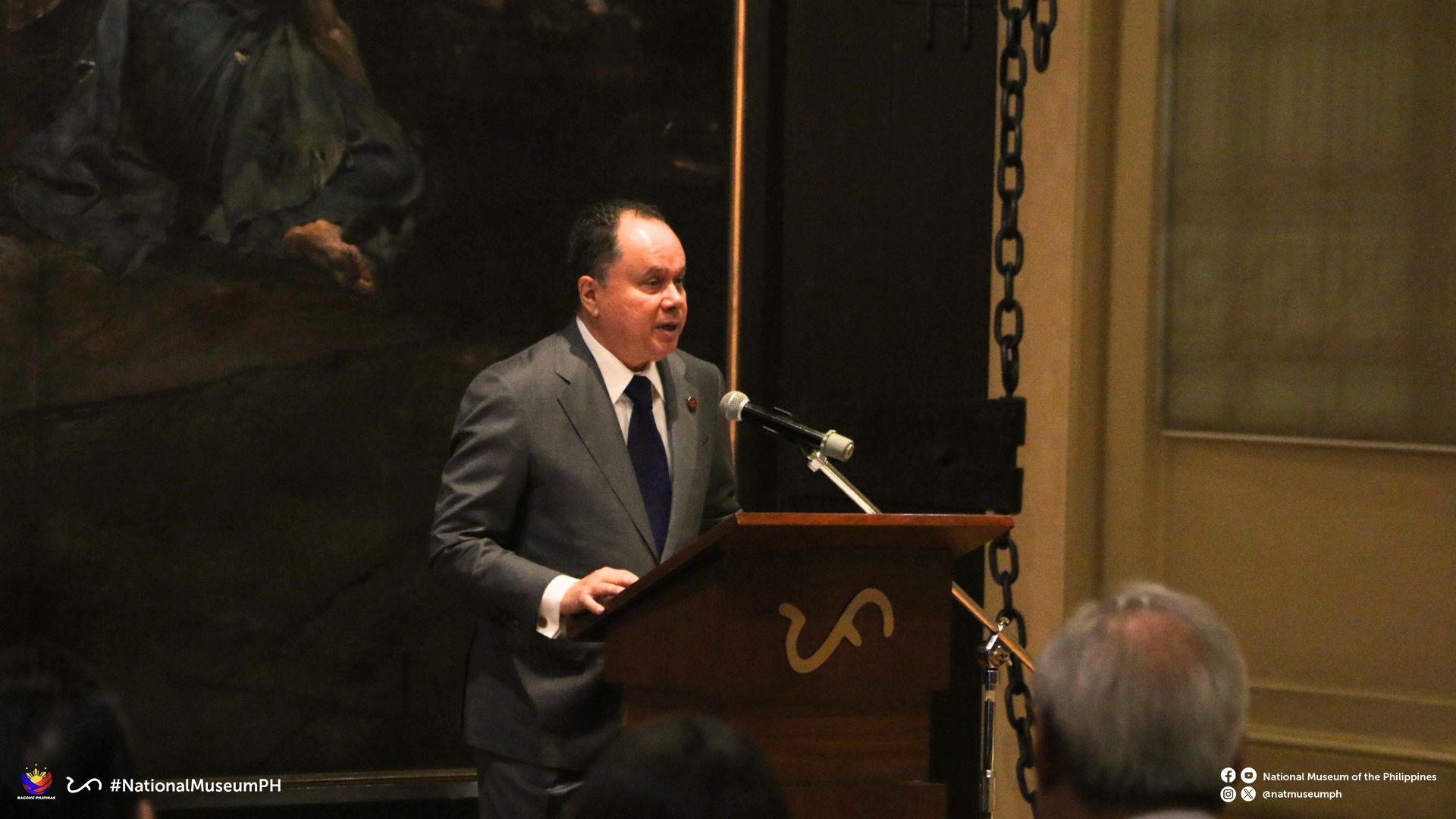
Chairman of NMP, Andoni Aboitiz
The BSP Governor Eli M. Remolona, Jr. and members of the Monetary Board joined the event, alongside former BSP Governor Amando M. Tetangco, Jr., Ms. Tess Espenilla (wife of the late Nestor A. Espenilla, Jr.), and the ever-graceful former Central Bank Governor Jaime C. Laya, who gave a short but enlightening talk about the BSP art collection.
From the NMP, Chairman Andoni Aboitiz, Director-General Jeremy Barns, and fellow trustees NCCA Chairman Victorino Mapa Manalo, Carlo Ebeo, and Jose Carlos Garcia-Campos also graced the occasion. Chairman Aboitiz expressed gratitude to the BSP for renewing its partnership, calling the exhibition a shining example of how financial institutions can also enrich our cultural wealth.
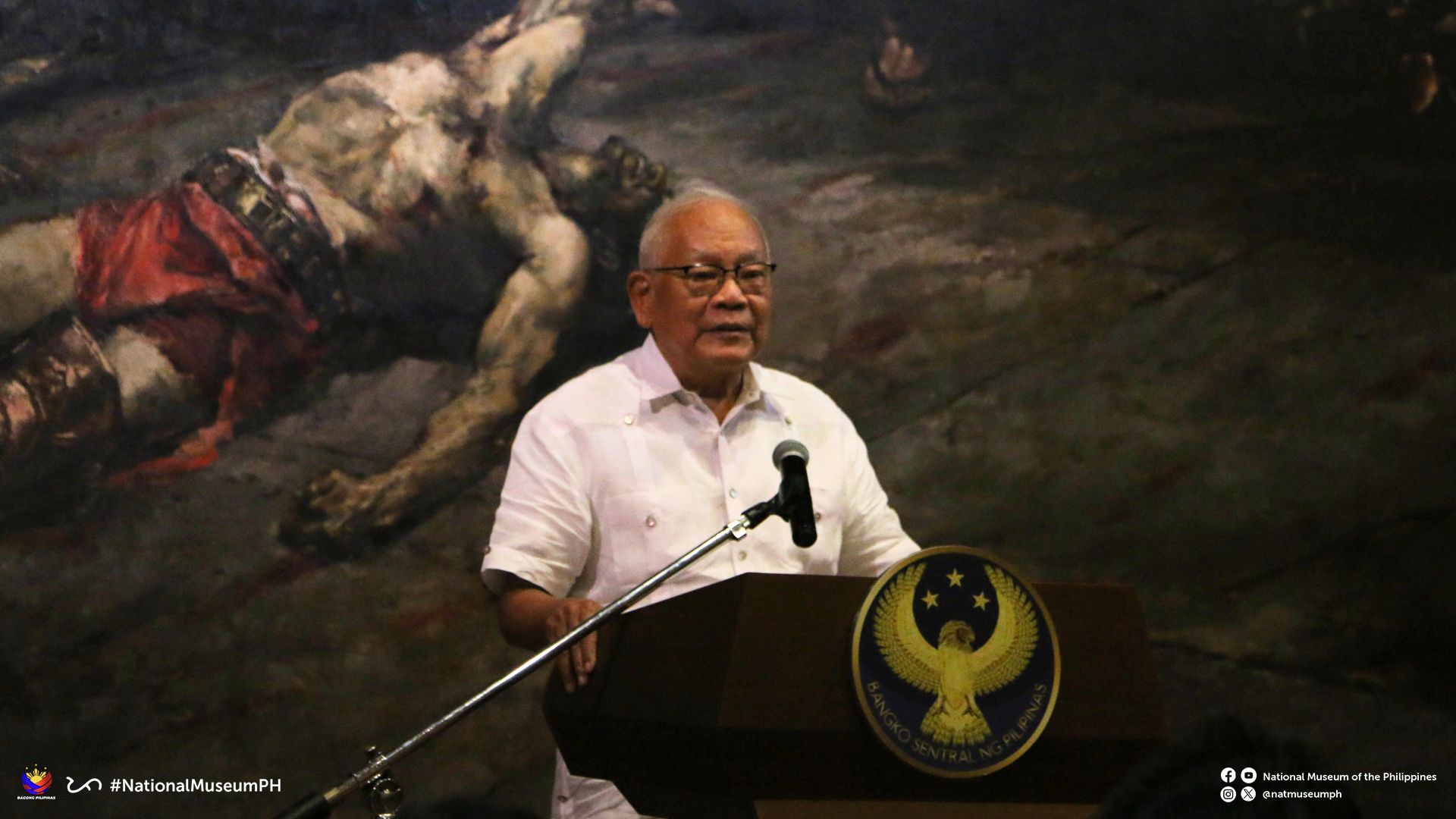
Former Governor of BSP Jaime Laya
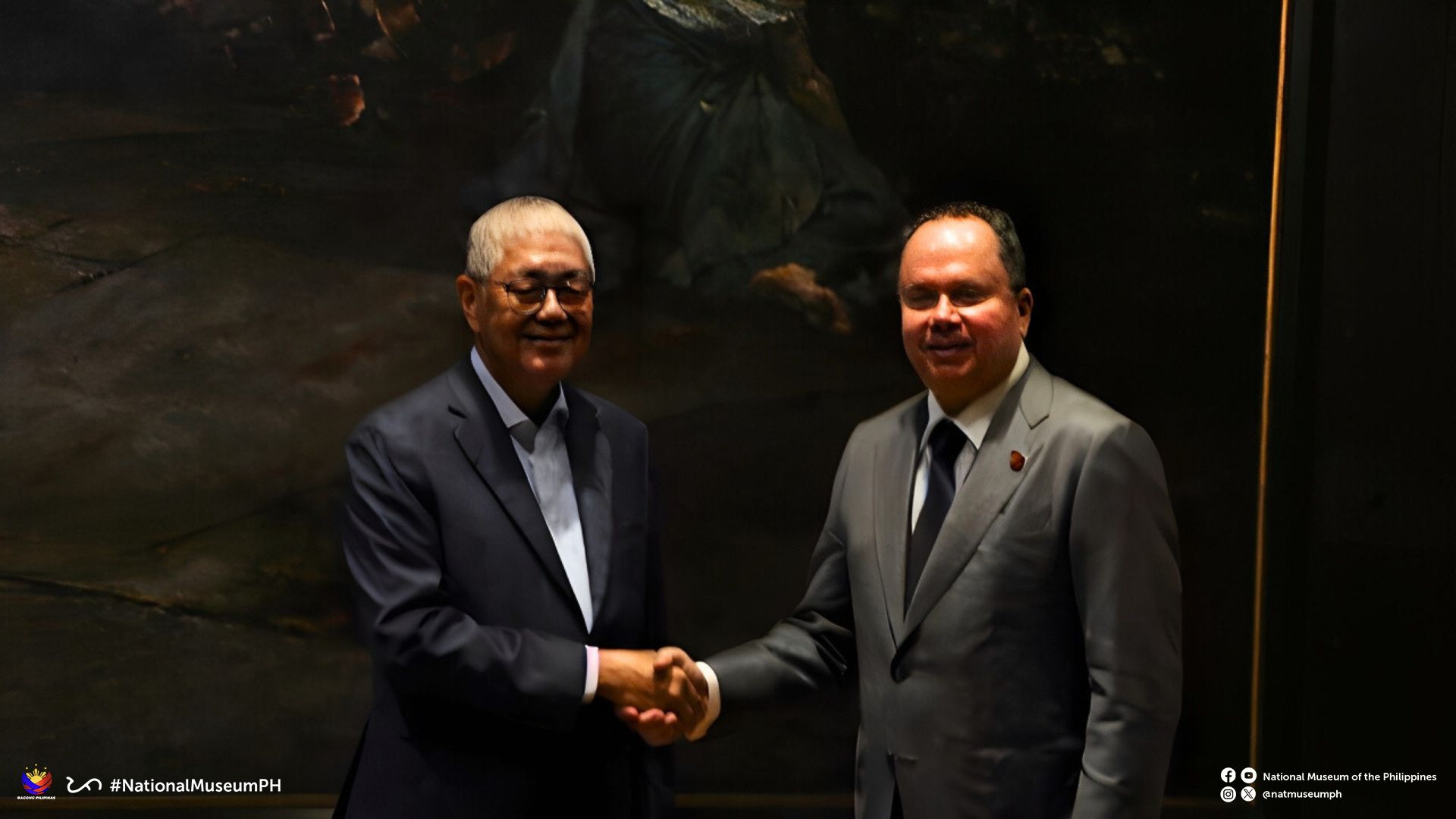
Governor of BSP Eli M. Remona and Chairman of NMP Board Andoni Aboitiz
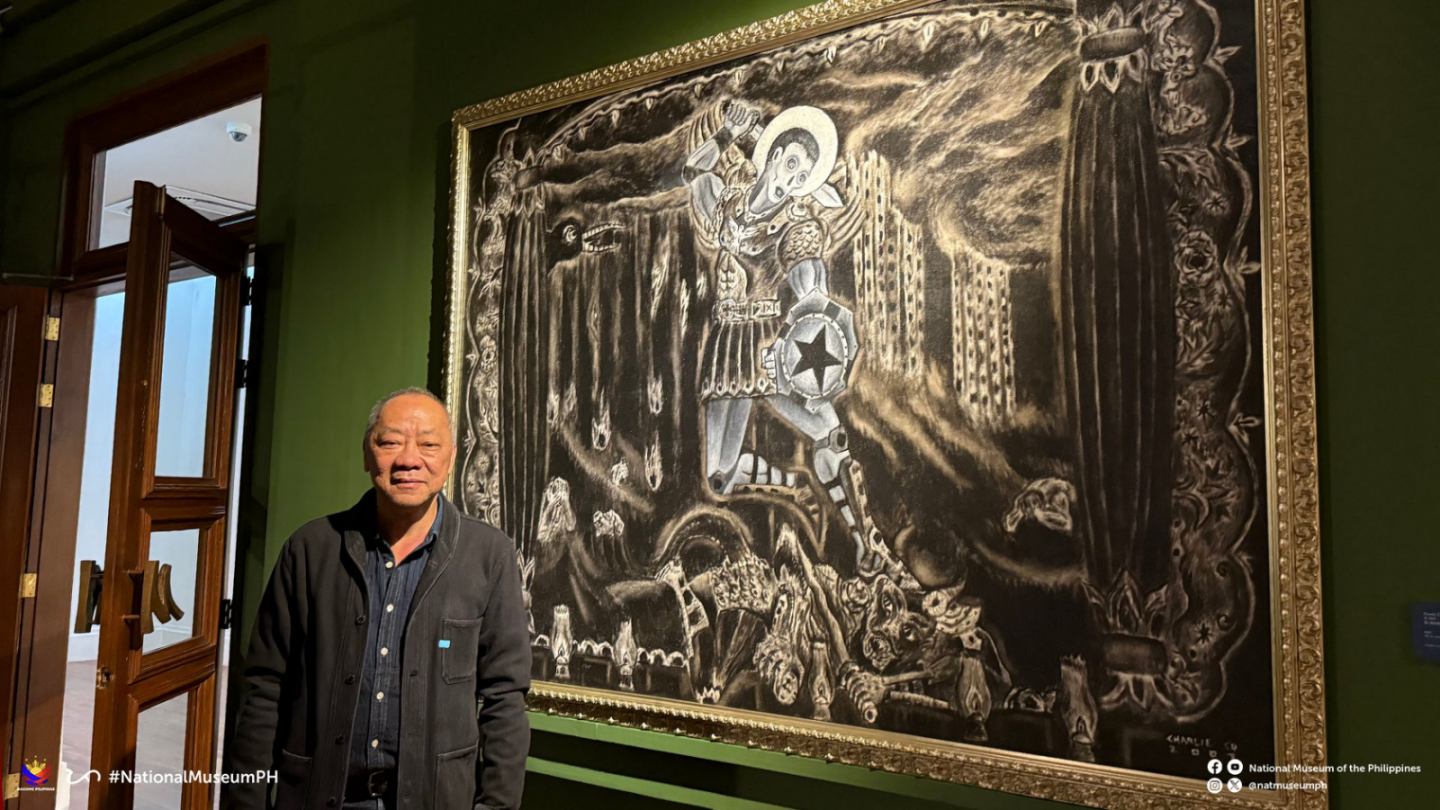
Artist Charlie Co
Before the official launch, a special media preview was held on 5 August, hosted by BSP Deputy Governor Bernadette Romulo-Puyat and DG Jeremy Barns. It gave lucky guests a sneak peek at the collection—because sometimes, even art likes to play “hard to get.”
The exhibition Kultura. Kapital. Kasalukuyan will run until November 2027 at Galleries XVIII and XIX, 3/F, National Museum of Fine Arts. Doors are open daily, 9:00 AM to 6:00 PM. So if you’re looking for something enriching that won’t hurt your wallet (admission is free!), this is your sign to visit. After all, the best kind of interest is cultural interest.
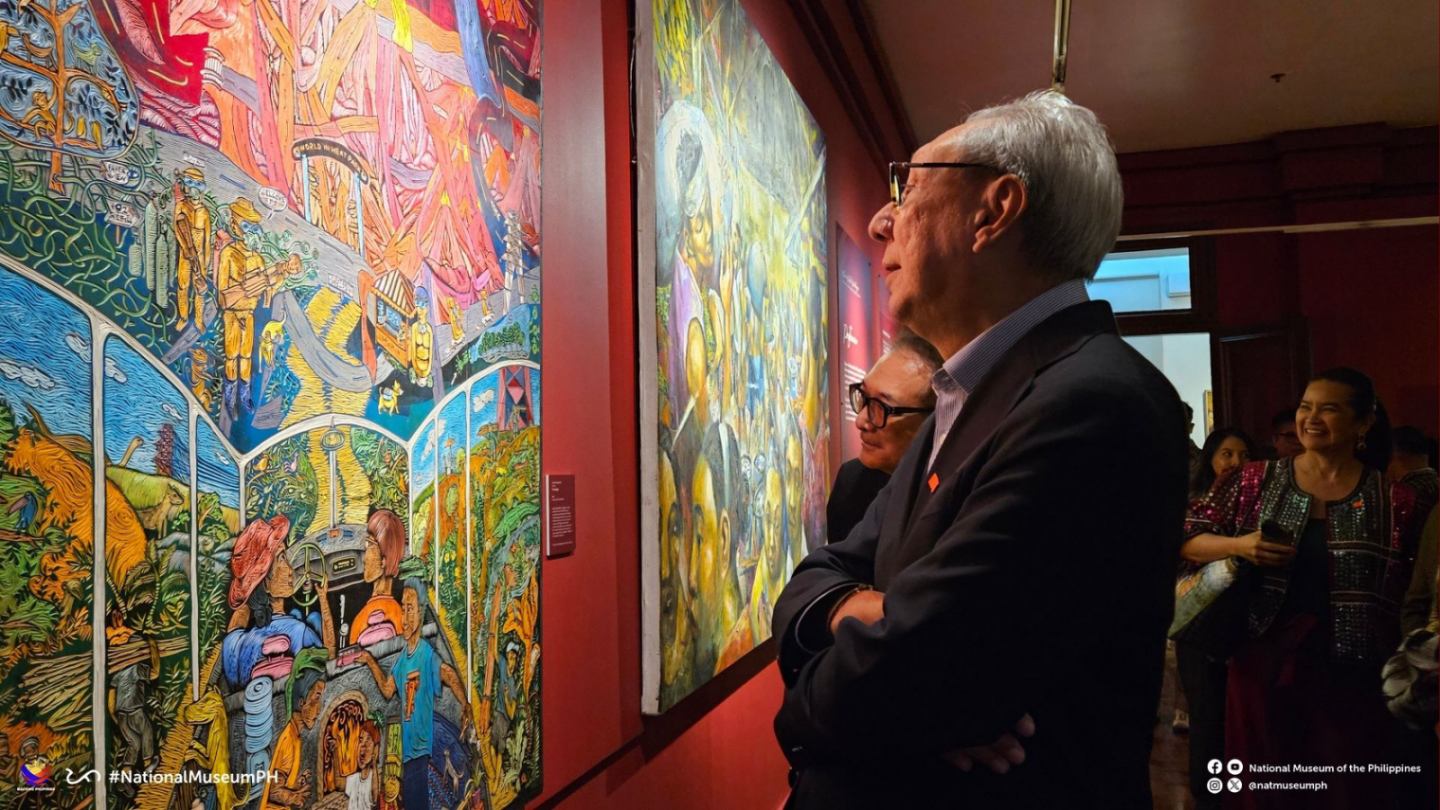
Monetary Board of the BSP, Walter C. Wassmer
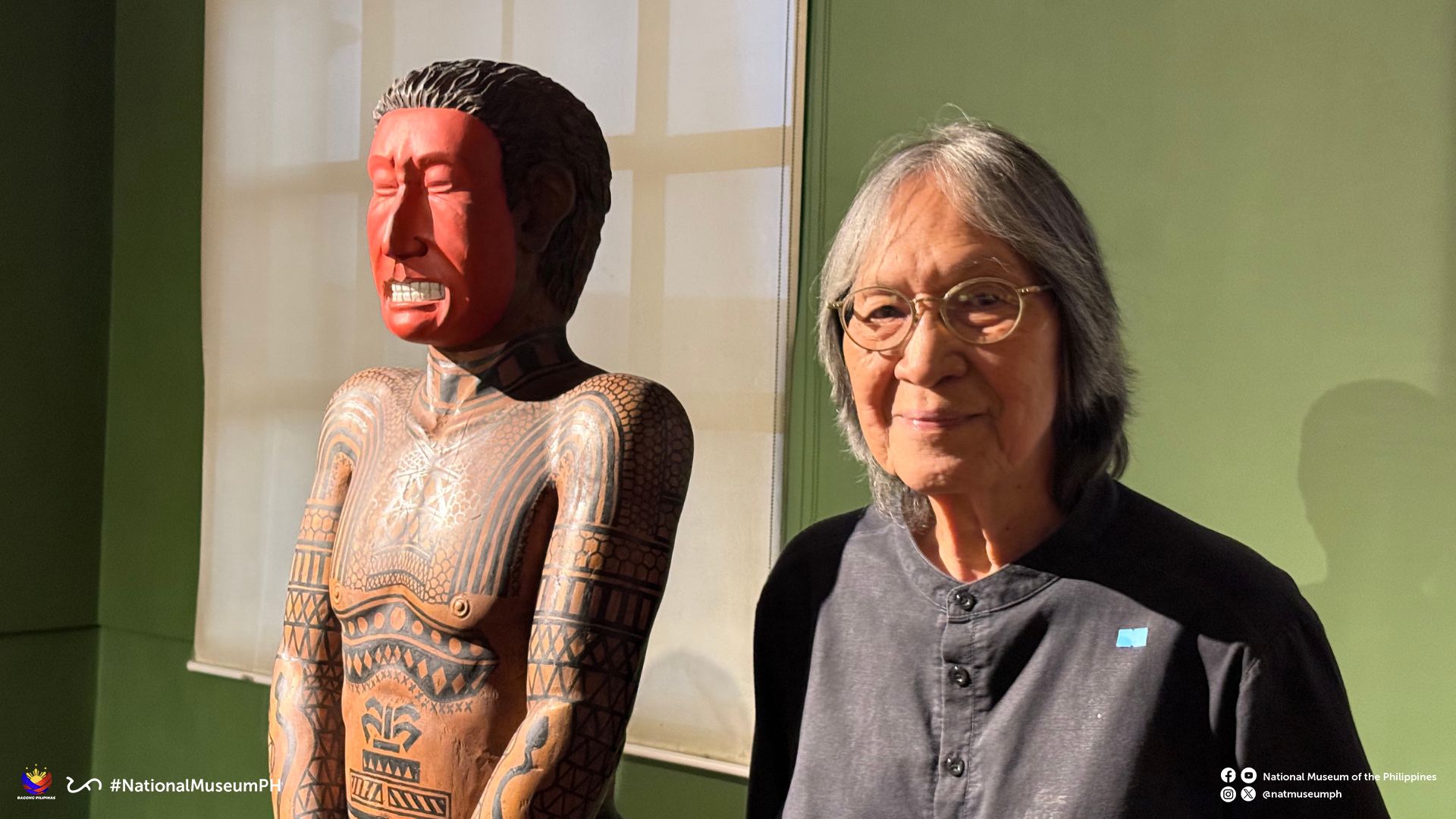
Luis Yee, Jr. aka ‘Junyee’ The Artist beside his Sculpture
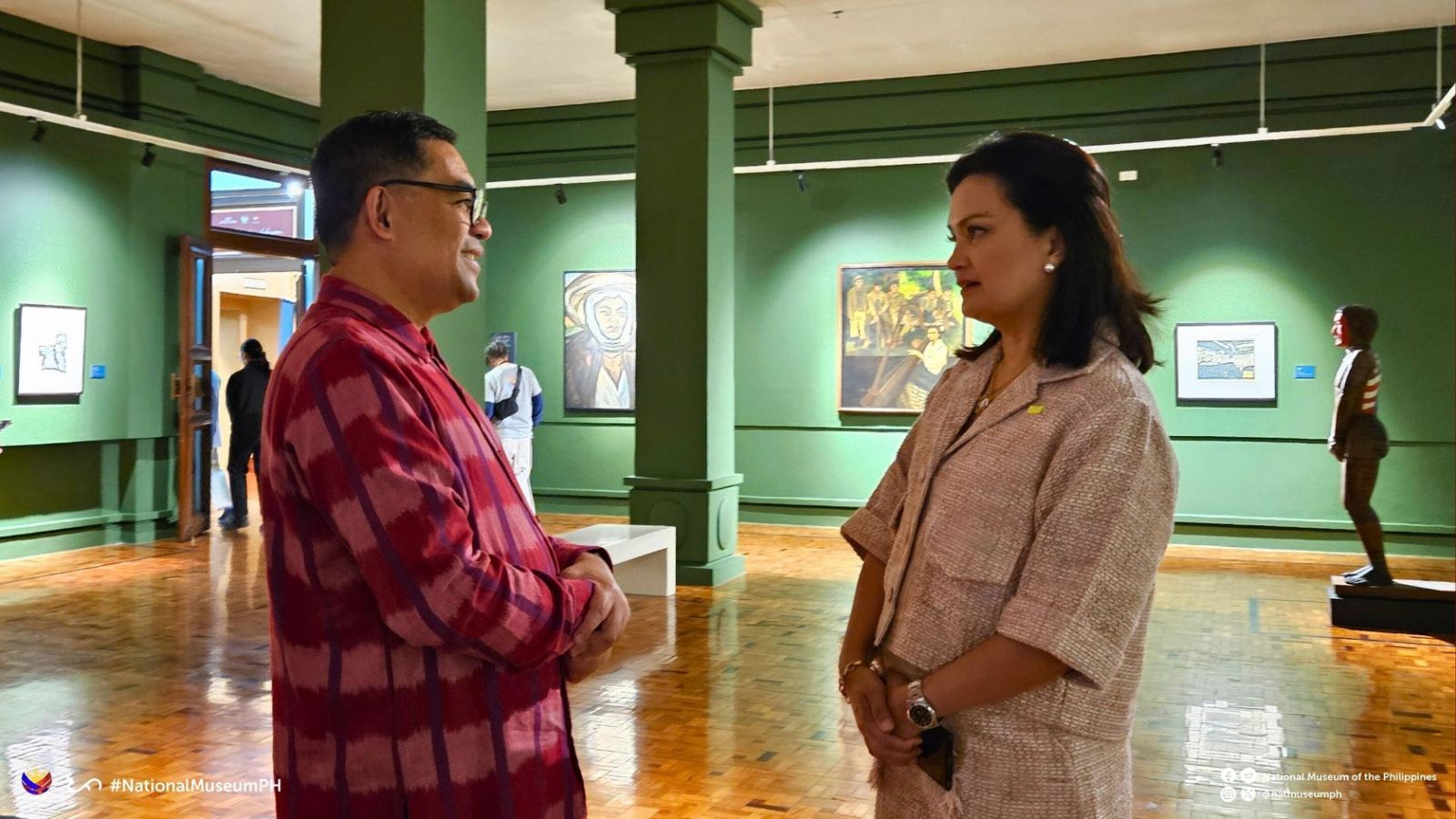
Arvin Manuel Villalon, Acting Deputy Director General for Museums, NMP with Ms. Daphne Osena Paez
Arts & Culture
Asia’s Fashion Czar I Knew as Tito Pitoy; Remembrance of a Friendship Beyond Fashion with Designer Jose R. Moreno
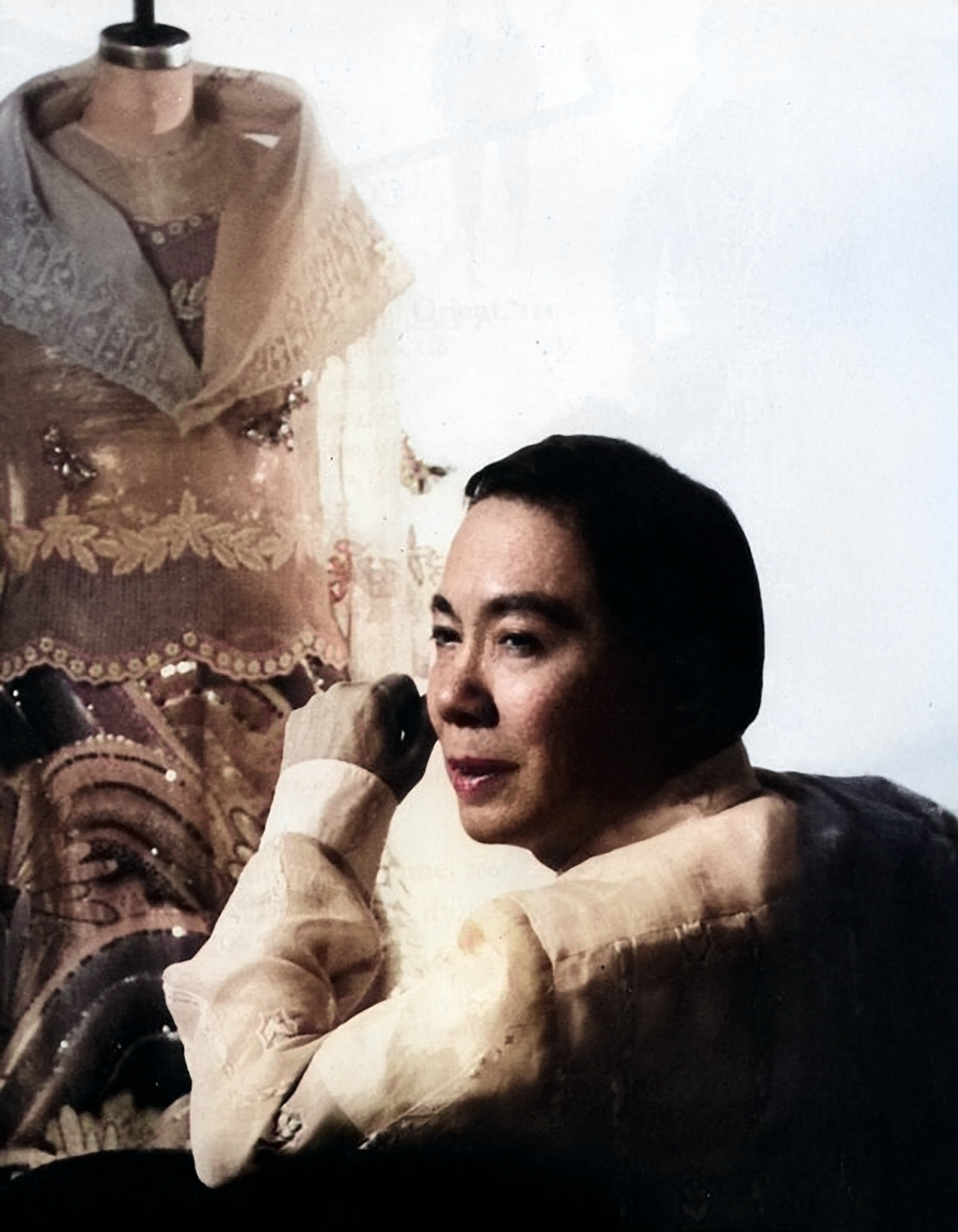
by Jose Carlos G. Campos, Board of Trustees National Museum of the Philippines
My childhood encounter with the famous Pitoy Moreno happened when I was eight years old. My maternal grandmother, Leonila D. Garcia, the former First Lady of the Philippines, and my mother, Linda G. Campos, along with my Dimataga aunts, brought me to his legendary atelier on General Malvar Street in Malate, Manila. These were the unhurried years of the 1970s.
As we approached the atelier, I was enchanted by its fine appointments. The cerulean blue and canary yellow striped canopies shaded tall bay windows draped in fine lace—no signage needed, the designer’s elegance spoke for itself. Inside, we were led to a hallway adorned with Art Deco wooden filigree, and there was Pitoy Moreno himself waiting with open arms—”Kamusta na, Inday and Baby Linda,” as he fondly called Lola and Mommy.
“Ahhh Pitoy, it’s been a while,” Lola spoke with joy.
“Oh eto, may kasal na naman,” my mom teasingly smiled.
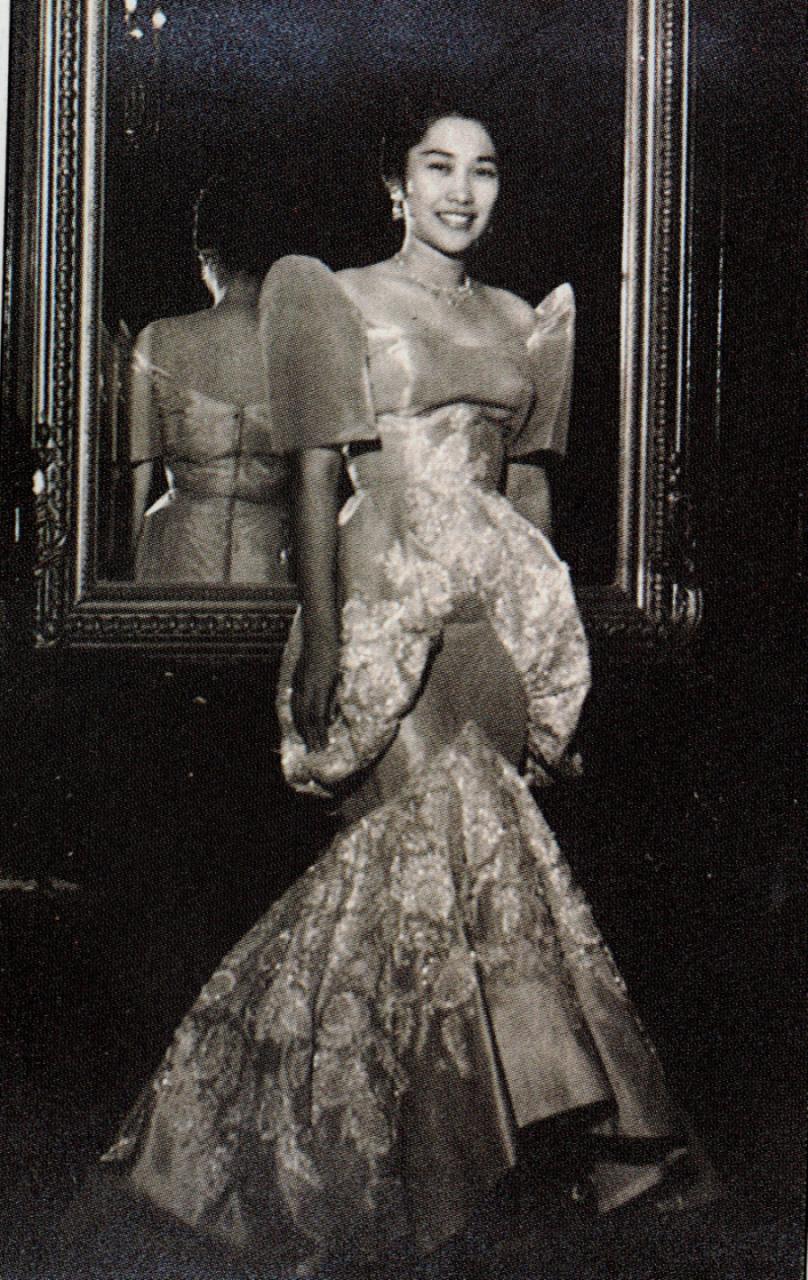
Linda Garcia Campos and Pitoy Moreno’s friendship started when they were students in the University of the Philippines in Diliman.
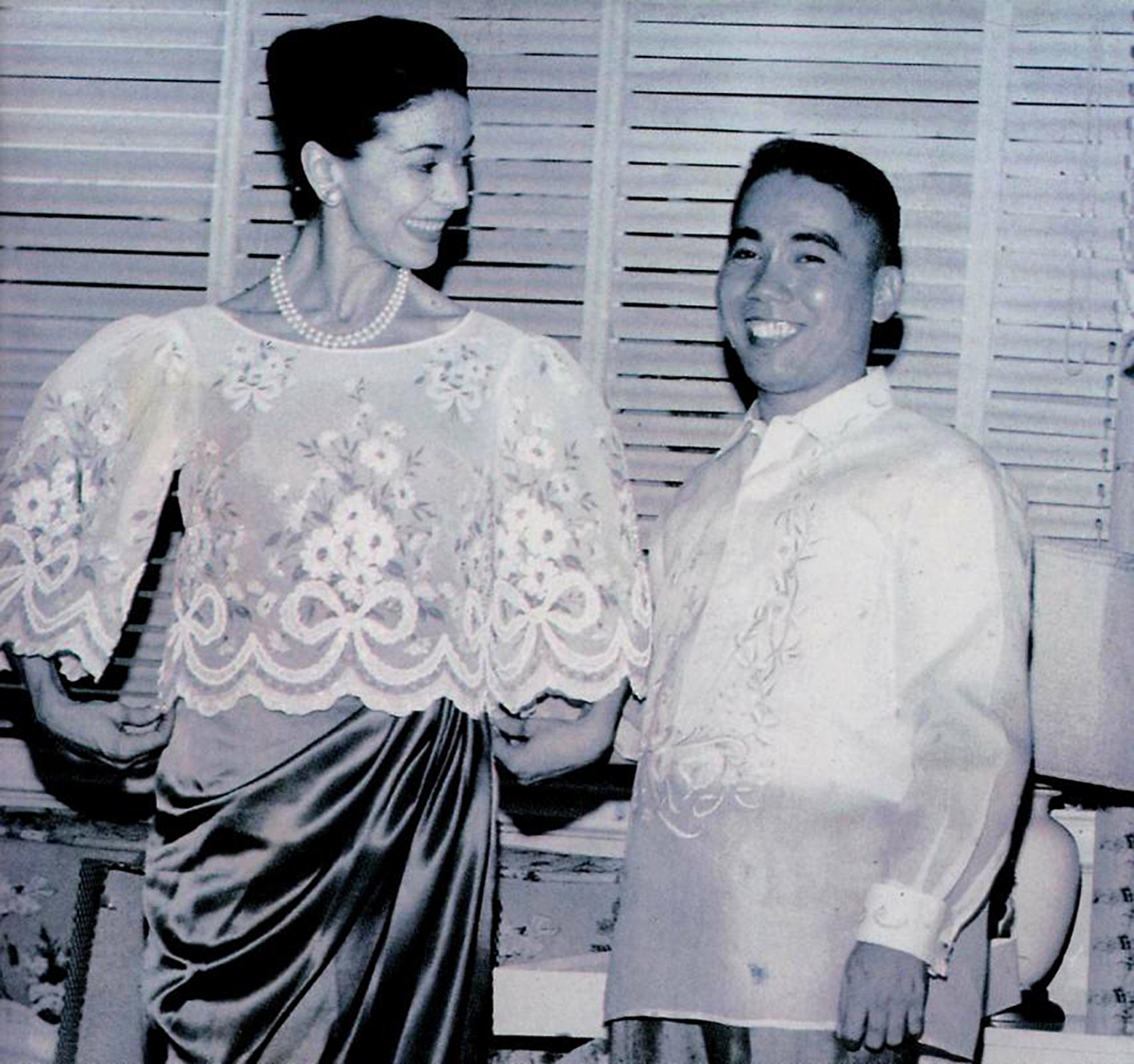
When Dame Margot Fonteyn came for a visit to Manila, Pitoy Moreno dressed her up for an occasion.
We had entered a world of beauty—porcelain figurines, ancient earthenware and pre-colonial relics. It was like stepping into a looking glass, only Pitoy could have imagined.
Destiny led me back years later when my mother Linda told me that Pitoy Moreno was working on his second book, Philippine Costume, and needed research material and editorial advice. At this point, around the 1990s, I was in between assignments—unsure of how a broadcasting graduate like me could possibly contribute to a fashion icon’s masterpiece. Fortunately, I agreed to the project.
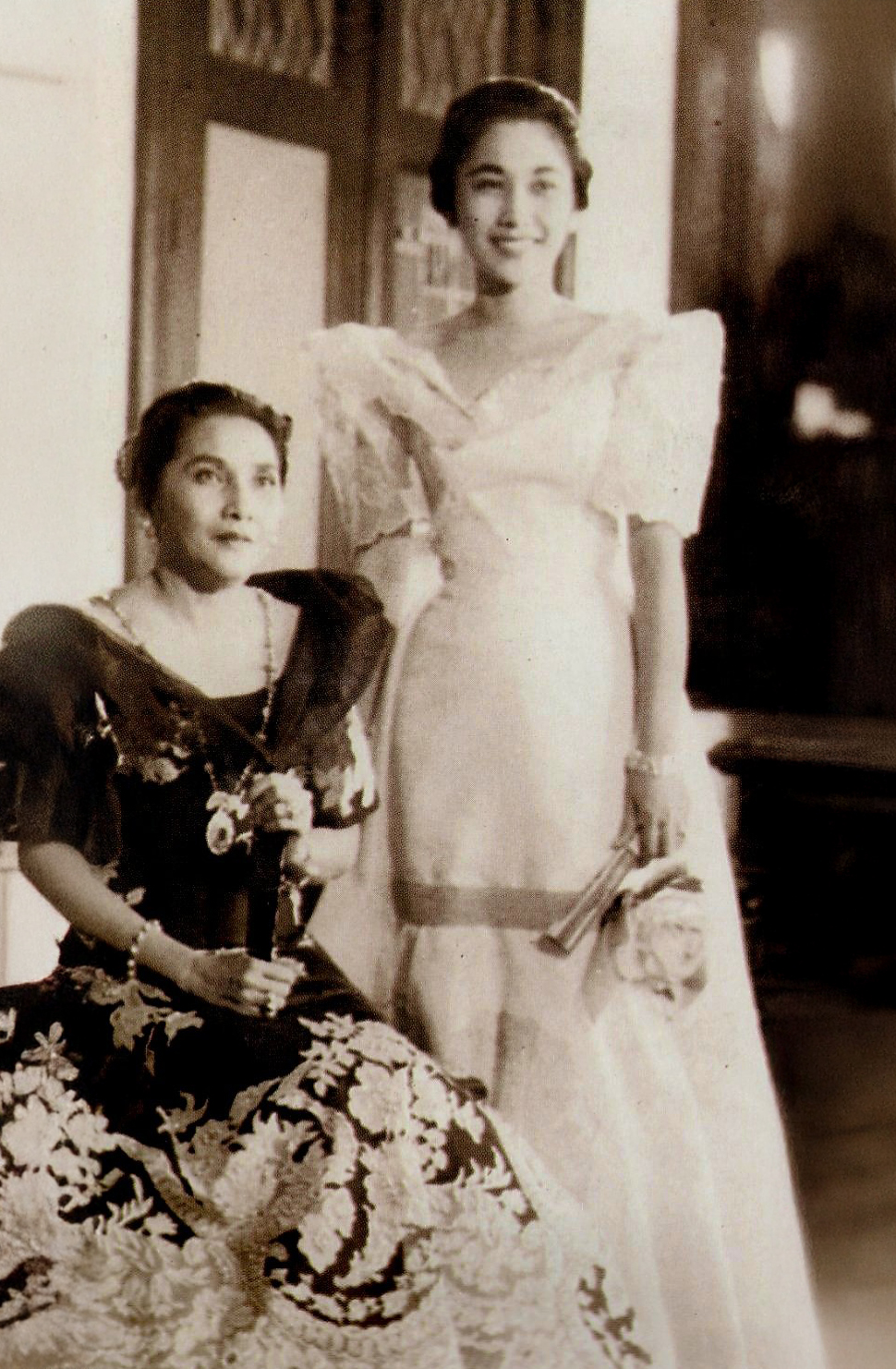
Former First Lady Leonila D. Garcia and daughter Linda G. Campos in Malacañang Palace.
Returning to the designer’s atelier brought back a rush of pleasant memories. The gate opened, and there stood Pitoy Moreno, beaming as always.
“Come in, hijo. Let me show you what I have in mind—and call me Tito Pitoy, okay?”
He led me to his worktable.
“I want to publish a book that tells the story of Philippine fashion—from our pre-colonial roots to the present. A designer’s collection of images and heritage expressed in clothing.”
I was awestruck. “How can I help you?” I inquired.
“Did you know that your mother, Linda, was my barkada in the University of the Philippines in Diliman?” he grinned.
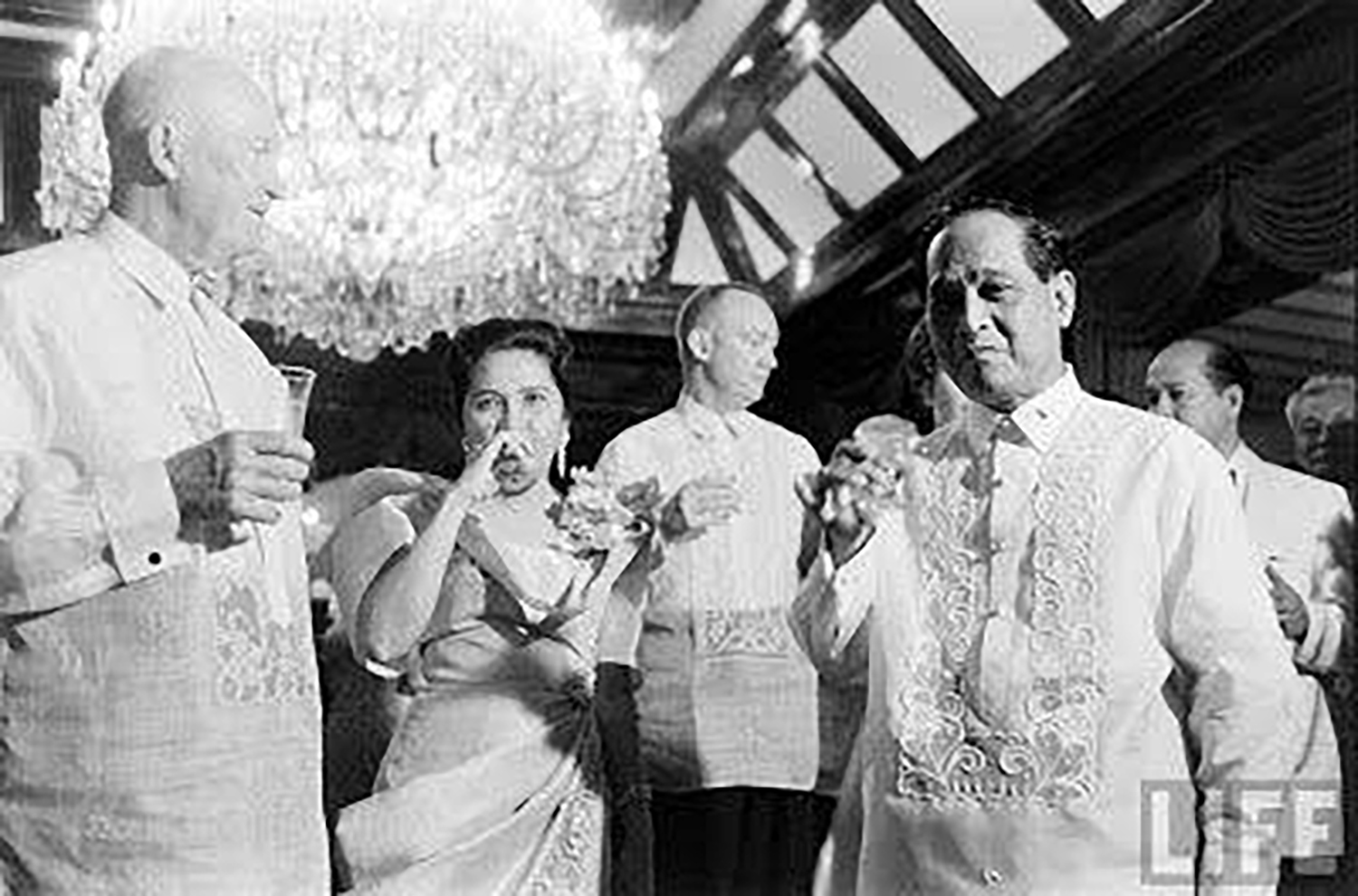
US President Dwight Eisenhower with First Lady Leonila Garcia and President Carlos Garcia in a state dinner at Malacañang Palace in Manila.
That friendship soon led to one of the proudest moments of the designer’s life. He had the opportunity to dress not only the First Lady Leonila D. Garcia but also President Carlos P. Garcia during his term. It was also during this time that the President of the United States, Dwight Eisenhower, came for an official visit to Manila. The designer was able to make clothes for the President, his daughter, and his staff.
“Eisenhower even asked for discounts on the barong Tagalog,” Tito Pitoy laughed.
Tito Pitoy then asked if I could find a terno he had made for my Lola, the former First Lady, which she wore for President Eisenhower’s state visit in 1960.
“How about her other ternos, dated from the 1920s to the 1960s?” I offered.
He lit up.
I scoured my Lola’s extensive closet—it felt like unearthing a legacy. Tucked behind layers of vintage ternos from countless fashion designers, I found that terno, which was photographed by Dick Baldovino along with other pieces for the book project. Once the project was finished and I myself had moved on, my bond with Tito Pitoy never wavered.
When my Lola passed away, he was deeply touched when I personally informed him of the sad news. Once, at the wake of former Vice President Salvador Laurel, he asked me to assist him in the placement of the medals in the chapel.
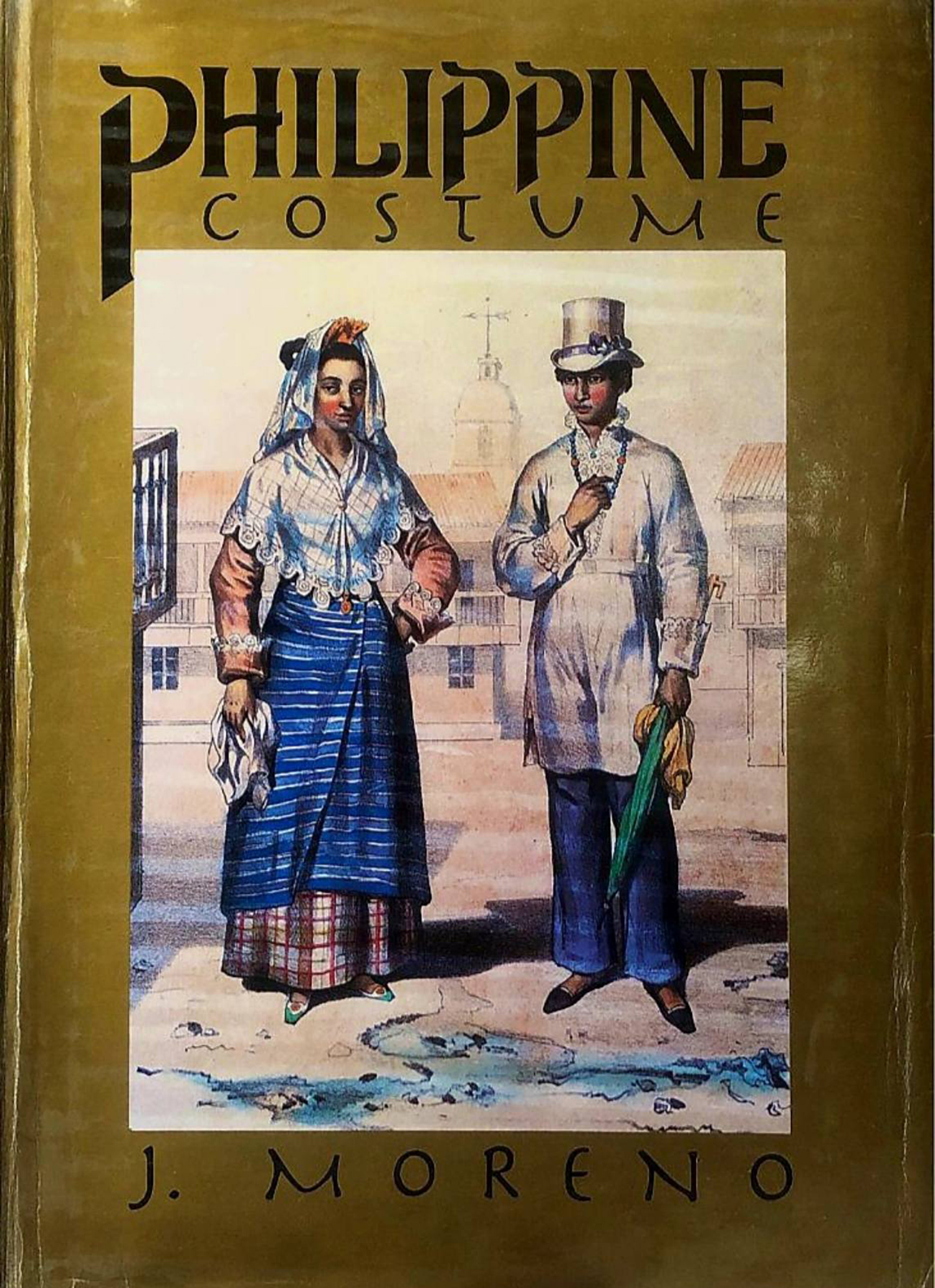
Philippine Costume by Jose Moreno is the designer’s collection of images and heritage expressed in clothing.
Tito Pitoy later invited me to his 80th birthday celebration—a dazzling Manila affair in 2012. During the evening’s festivities, he handed me a printed copy of Philippine Costume and added warmly,
“Thank you, hijo. I’ll call on you for the next one.”
The highlight of his career—and his most unforgettable moment—came during the Metro Magazine Gala fashion show: A Tribute to Pitoy Moreno, Fashion Icon. A collection of evening gowns spanning six decades—many of them unseen and tucked away in his atelier—were revealed that night. When the finale came, Tito Pitoy walked the stage, triumphant and waving to a sea of admirers. Longtime friends from the industry, society’s finest, and fashionistas rose from their seats and gave him a standing ovation.
It wasn’t just to celebrate his craft and ingenuity—it was to honor the man who brought elegance, history, and heart in every stitch.
-
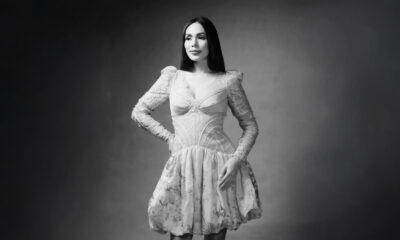
 Prime Target1 month ago
Prime Target1 month agoBee Urgello–Fashion Influencer and Designer’s Muse Goes on a Hiatus
-

 Fashion1 month ago
Fashion1 month agoCloud Dancer: The Resonant Reset of 2026
-

 Travel1 month ago
Travel1 month agoSunlight in Siquijor: Discovering the Landscape Shifts and Coastal Plains of this Mystical Island
-

 Travel3 months ago
Travel3 months agoAutumn in Istanbul: Fellow Travellers Share Turkish Delights
-

 The Scene3 months ago
The Scene3 months agoBe Fabulous: Dr. Fremont Base’s 50th Birthday Party Echoes the Disco-Glam Era
-
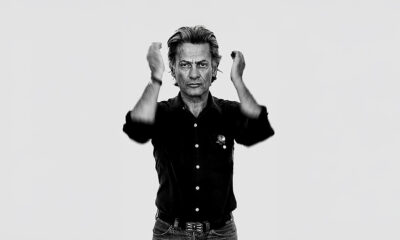
 QuickFx2 months ago
QuickFx2 months agoIn Black and White: Photographer Richard Avedon Captures the Cultural Zeitgeist of His Era
-

 Prime Target4 weeks ago
Prime Target4 weeks agoRod Malanao: Empowering the Growth of the Luxury Fashion Industry to Designing Knit Wear on the Side
-
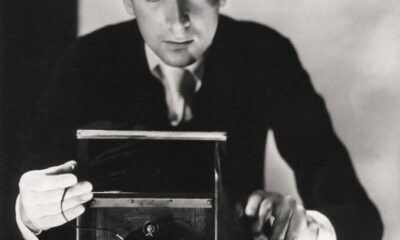
 QuickFx2 weeks ago
QuickFx2 weeks agoBright Young Things: Why Cecil Beaton Remains Vital in the World of Photography





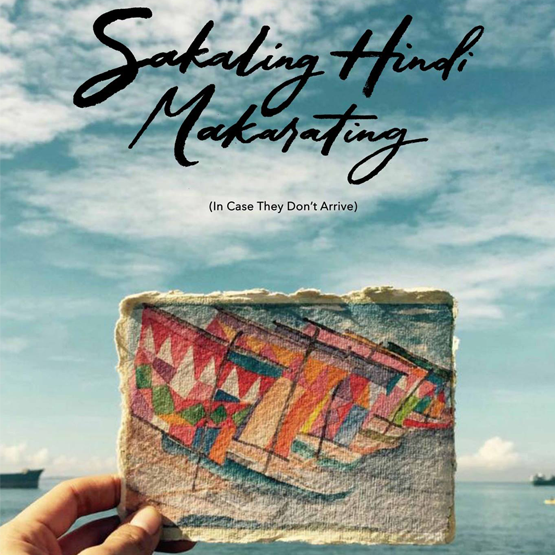




You must be logged in to post a comment Login